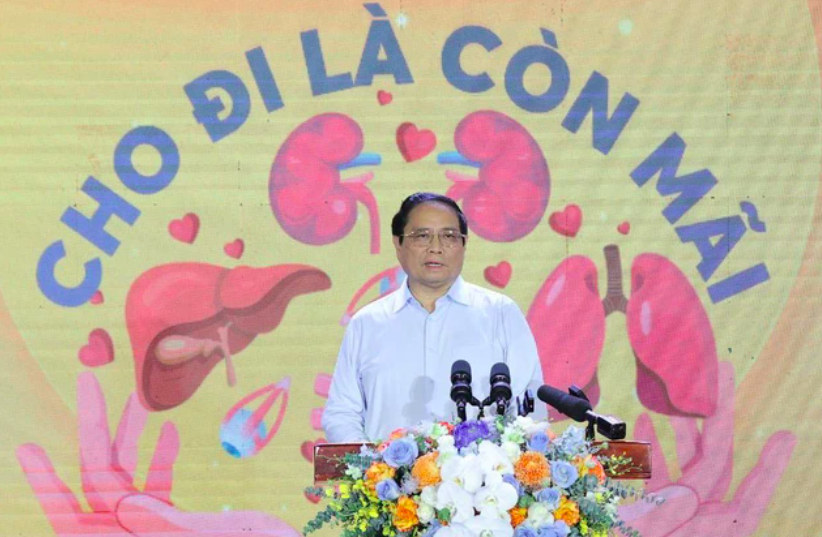
But the number of registered donors surged by 10,000 just two weeks after Prime Minister Pham Minh Chinh registered for organ donation on May 19.
The information was released by Dong Van He, director of the National Organ Transplant Coordination Center, at an event on June 3.
The figure might be higher if counting the registrations at hospitals. The Central Military Hospital No 108, the hospitals in Quang Ninh and others organized the campaigns for organ donations, but information about the campaigns have not been updated.
He said the building of a network of hospitals calling for organ donations plays a very important role. Malaysia has a population of 39 million, just one third of Vietnam’s, but it has 156 hospitals for organ donations with a high number of consultancy units.
"By the time we visited the country, there had been 32 cases of brain death with registered organ donations so far this year. Meanwhile, during the same period, there were only nine cases in Vietnam," he said. "The majority of the donors were at the Vietnam-Germany Friendship Hospital."
To date, the network for soliciting organ donations from the public has been established at 68 hospitals across Vietnam, including 24 in the north, 29 in the south, and the remainder in the central region.
However, it has been acknowledged that the network does not function as effectively as anticipated.
The National Organ Transplant Coordination Center estimates that out of the 1,500 hospitals nationwide, 500-600 could potentially serve as sources for brain-dead donors. If Vietnam can expand this network, the country could have a number of brain-dead donors comparable to that of South Korea within 5-7 years.
Deputy Minister Tran Van Thuan stated that after 32 years of development, Vietnamese surgeons are now capable of transplanting most human organs, including kidneys, livers, hearts, lungs, and pancreases.
Over the past two years, Vietnam has conducted approximately 1,000 transplant cases annually, the highest level in ASEAN. Despite the continuous increase in the number of transplants, it still falls short of meeting demand.
A notable aspect in Vietnam is that 95 percent of transplant cases in the country involve organs donated by living individuals, whereas in developed countries, donors are predominantly brain-dead.
Although Vietnam is 50 years behind the world in terms of transplant technology, its capabilities are on par with those of developed countries.
Most recently, in April, 120 doctors from various hospitals collaborated effectively to retrieve organs from a brain-dead individual in Quang Ninh. These organs were then transported to multiple transplantation centers where surgeries were performed, saving the lives of seven individuals.
Vo Thu